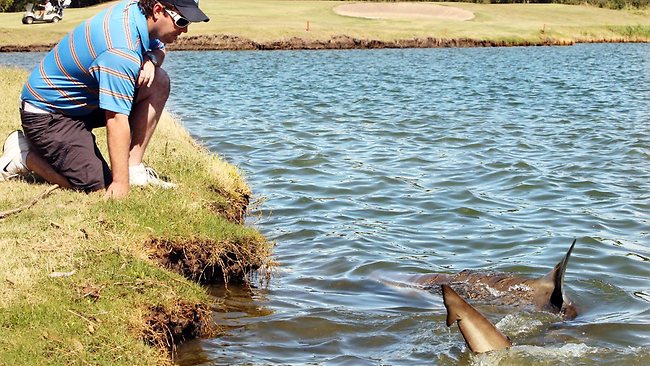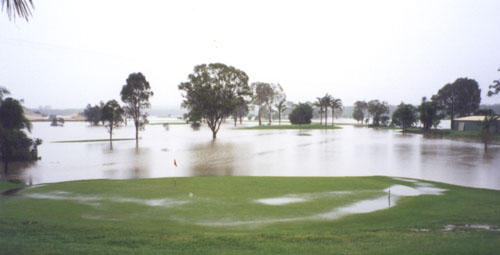Sharks on a Golf Course!
Yes, you heard that right. Carbrook Golf Club in Queensland, Australia is home to sharks! Not just any sharks either, the lake on the course is home to an estimated 12 bull sharks. Some of these sharks are rumored to be nearly 10 feet in length. That definitely makes for a terrifying water hazard.

What are Bull Sharks?
Bull sharks are considered one of the most dangerous sharks in the world. There are over 120 confirmed attacks on humans and over 25 fatalities. The movie Jaws is based on a series of attacks by a bull shark in 1916. Able to grow over 13 feet, bull sharks can also reach nearly 700lbs. If that’s not enough, bull sharks are also extremely aggressive and can be territorial. These sharks are not to be messed with.
How do They Live in a Lake?
This is one of the most amazing aspects of bull sharks. Bull sharks can live in freshwater and brackish water. They also like to travel. There have been bull sharks found as far up the Mississipi River as Alton, Illinois. That is over 600 miles away from the coast! They have been known to travel up the Amazon river as far as 2500 miles. While typically not strictly freshwater sharks, bull sharks are capable of surviving in freshwater. Hence, the sharks in the lake are doing just fine. They are actually thriving and reproducing.

How Did They Get There?
The sharks are believed to have entered the course during an extreme flood in 1996. As the water dried up, six sharks found themselves trapped inside the course’s 52-acre lake. Since then, the sharks have reproduced and currently, there are believed to be 12 in the lake.
Are They Dangerous?
Despite bull sharks being historically dangerous, the sharks on Carbrook Golf Course pose no serious threat to golfers. Obviously, it is not advised to go swimming in the lake, but bull sharks live alongside humans all over the world. Since a shark is unlikely to directly come into contact with a golfer, the course has continued to let the sharks live there. They have even named a monthly tournament “Shark Lake Challenge”.

